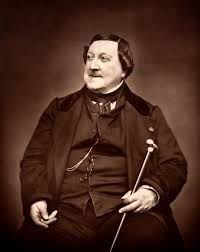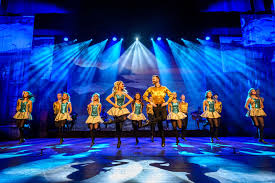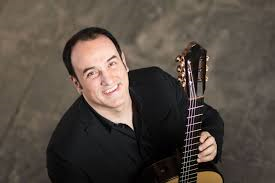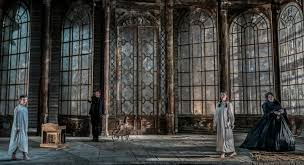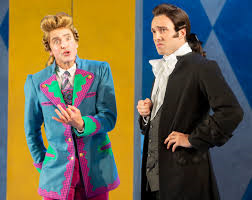Monthly Archives: July 2019
Opus Theatre
Argentine Tango at Opus Theatre
Hastings Tango Club, Casa Tango & Classicus Proudly Present
ARGENTINE TANGO
The History – The Anecdotes – The Meanings
Opus Theatre Saturday 7th September 2019 – 3.30 – 6.00pm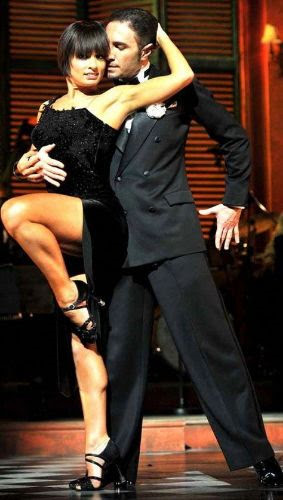
Argentine Tango is one of the most popular dances the world has ever known. Learn all you always wanted to know about this most passionate of Latinamerican dances: its real origins, the hidden content of its lyrics, the colourful anecdotes and much more. With special dance demonstrations (including a special appearance from international tango stars Santiago & Sandra Monticelli) as well as a unique opportunity to hear local composer Polo Piatti talk about his upbringing in the ‘La Boca’ district where Tango was born and one of his famous teachers, tango king Astor Piazzolla. Another extraordinary event taking place at the iconic Opus Theatre in central Hastings.
| Tickets £5 includes tea, coffee and cake – Free for ‘Friends Of Opus Theatre’ |
Cadogan Hall presents its thirteenth Zurich International Orchestra Series in 2019-20
Cadogan Hall presents its thirteenth Zurich International Orchestra Series with twelve concerts performed by eleven of the world’s most distinguished orchestras. This season sees five ensembles make their Cadogan Hall debuts, performances from international artists and contemporary music from female composers.
Britten-Shostakovich Festival Orchestra
As part of its inaugural tour, the newly formed Britten-Shostakovich Festival Orchestra, conducted by founding Artistic Director Jan Latham-Koenig, open the series. The ensemble, on a 7-date tour of the UK, is made up of young musicians from conservatoires from both countries: they perform music of their homelands, inspired by the great Cold War friendship between the two composers after whom the orchestra is named.
The orchestra’s only London date opens with Vaughan Williams’ Fantasia on a Theme by Thomas Tallis and closes with Shostakovich’s Hamlet Op.116a with actors Edward Fox and Freddie Fox. Pavel Kolesnikov is the soloist for Rachmaninov’s Rhapsody on a Theme of Paganini before the focus returns to the UK with Britten’s Four Sea Interludes from Peter Grimes (Wednesday 25 September 2019).
Mariinsky Orchestra and Valery Gergiev
The Mariinsky Orchestra and Valery Gergiev return to Cadogan Hall for a pair of concerts. They mark the 150th anniversary of Berlioz’s death with his Symphonie Fantastique and excerpts from Romeo and Juliet. Both dates feature a different soloist winner from the prestigious XVI International Tchaikovsky Competition: Gold Medal winner for Woodwind Matvey Demin performs Ibert’s Flute Concerto and Fantasy on Bizet’s Carmen by Borne. Silver Medal winner for Piano Mao Fujita plays Tchaikovsky’s Piano Concerto No. 1. Excerpts from Rimsky-Korsakov’s Mlada as well as The Legend of the Invisible City of Kitezh and the Maiden Fevroniya complete each programme (Monday 7 & Tuesday 8 October 2019).
All-Russian Programmes
Alexandra Dariescu joins the Moscow Philharmonic Orchestra for Rachmaninov’s much-loved Piano Concerto No. 2. Conducted by Yuri Simonov, ballet music permeates the rest of the programme with Tchaikovsky’s Romeo and Juliet Fantasy Overture, as well as excerpts from Swan Lake and Khachaturian’s Gayane (Thursday 10 October 2019).
In its series debut, the Siberian Symphony Orchestra conducted by Dmitry Vasiliev, open their concert with Shostakovich’s Festive Overture. Freddy Kempf makes a welcome return to Cadogan Hall to perform Rachmaninov’s Piano Concerto No. 3 before Tchaikovsky’s Symphony No. 4 closes the programme (Thursday 23 April 2020).
In a celebration of Prokofiev and Tchaikovsky, the St Petersburg Symphony Orchestra is joined by Jennifer Pike for Tchaikovsky’s Violin Concerto. Tchaikovsky’s Symphony No. 5 and excerpts from Prokofiev’s Cinderella Suite bookend the concert, which is conducted by Nikolai Alexeev (Wednesday 27 May 2020).
Contemporary Music
The Iceland Symphony Orchestra with conductor Yan Pascal Tortelier perform Aereality, the work written for them by fellow Icelander Anna Thorvaldsdóttir. Premiered in November 2011, it was nominated as Composition of the Year at the Icelandic Music Awards in 2012 and portrays the state of gliding with nothing to hold onto, as if flying. The music explores both the feeling of absolute freedom and unease gained from the lack of attachment. Also making up their debut programme at Cadogan Hall is Bizet’s L’Arlésienne Suite No. 2, Ravel’s jazzy Piano Concerto for the Left Hand with Yeol Eum Son, as well as excerpts from Prokofiev’s Romeo and Juliet (Monday 10 February 2020).
The Brussels Philharmonic and conductor Stéphane Denève return to close the series. Anna Clyne’s This Midnight Hour, which premiered in November 2015, opens the concert and is inspired by poetry as well as the character and power of the lower strings of L’Orchestre national d’Île-de-France. Following this, Jean-Yves Thibaudet is the soloist in Liszt’s Piano Concerto No. 2 before the final work: Mahler’s epic Symphony No. 1 (Thursday 11 June 2020).
Other International Artists
Guitarist Miloš Karadaglic brings Spanish repertoire to Cadogan Hall with Flanders Symphony Orchestra under José Luis Gomez. The programme opens with Rossini’s The Barber of Seville Overture and continues with music by Rodrigo, Villa-Lobos, de Falla and closes with Bizet’s Carmen Suite (Wednesday 30 October 2019).
Mezzo-soprano Ester Pavlu is the soloist with Prague Symphony Orchestra in Mahler’s Symphony No. 3, often referred to has his hymn to the natural world. Pietari Inkinen conducts. (Tuesday 12 November 2019).
Eric Lu performs Beethoven’s Piano Concerto No. 4, the work with which he won the 2018 Leeds International Piano Competition and has subsequently released on Warner Classics to great acclaim. Orchestre National de Lille make its Cadogan Hall debut under the baton of Alexandre Bloch and completes the all-French programme with Ravel’s Ma mère l’Oye Suite and La Valse as well as Debussy’s La Mer (Wednesday 29 January 2020).
Both performing for the first time at Cadogan Hall, the Swedish Philharmonia are joined by violinist Viktoria Mullova for Prokofiev’s Violin Concerto No. 2, conducted by Jaime Martín. The other two works are Mendelssohn’s Symphony No. 5 ‘Reformation’ and Sibelius’ Symphony No. 5 (Friday 13 March 2020).
CDs/DVDs July 2019
Puccini: Madama Butterfly
Glyndebourne Festival Opera
OPUS ARTE OA 1167 D
This is a captivating and very moving account which avoids gimmicks and yet brings us a fresh and disturbing vision of the world American Imperialism. In the opening scene we are in Goro’s office where sailors are passing through to buy local girls. Pinkerton is marrying Cio-Cio-San but the transaction is hardly any different, and there is nothing romantic about the event except for the music which brilliantly reflects the inner-lives of those involved. Behind everything is the film of life for Japanese brides in the promised land of the USA.
Joshua Guerrero ‘s Pinkerton is naïve rather than brash, but comes to take his position more seriously as the work progresses. Olga Busuioc is a touching Butterfly who matures and becomes heroic by the final scenes. Michael Sumuel is a fine Sharpless, aware of the pitfalls but unable to prevent the tragedy.
Omer Meir Wellber’s conducting is whole-hearted, extrovert and totally engaging. I didn’t see this live in the house and now wish very much that I had done so!
Mascagni: Cavalleria Rusticana
Maggio Musicale Fiorentino
DYNAMIC 37843
This is musically a very sound performance, full-blooded and tightly controlled by Valerio Galli but for once I feel it might have been better as an audio release rather than DVD. The production by Luigi Di Gangi and Ugo Giacomazzi is conventional to the point of dullness, and allows the singers to ignore each other and sing straight to the audience. The chorus, who you might expect to know the work well, stand in serried ranks and can be seen keeping a close eye on the conductor. Much of the performance is given in semi-darkness and the ‘ideas’ – a strangely phallic pole, a bath of ash-laden dye for a vast sheet hauled above the singers – seem to have no relationship to what is actually happening.
Lehar: Die Lustige Wiwe
Frankfurt Opera, Joana Mallwitz
OEHMS OC 983
Having just said I could have done without the visual impact of the Cavalleria Rusticana reviewed above, I really wish I had had the full DVD version of this new Merry Widow. It sparkles with life and vitality, the dialogue it clipped without making it too brief and the characterisation throughout is magnificent.
Iurii Samoilov and Marlis Petersen are ideally paired as Danilo and Hanna, while there is smouldering intensity from Kateryna Kasper and Martin Mitterrutzner as Valencienne and Camille. Smaller parts are all cast from strength and there is a constant sense of a live performance without it ever hindering the quality of the music. A gem!
Mercadante: Didone Abbandonata
Academia Montis Regalis, Alessandro De Marchi
NAXOS 2.110630
Mercadante is almost forgotten today but was an important opera composer alongside Donizetti and an influence on Verdi. The work as here presented is a meticulous reconstruction of early music styles which allows us to get a feel for the way it may have sounded to its original audience. A highly enjoyable recording of a rare work and worth seeking out.
Mozart: Die Zauberflote
Vienna Philharmonic Orchestra and State Opera Chorus, Constantinos Carydis
UNITEL 749708
The approach here starts from the point of view of a grandfather reading a bedtime story to his three grand-sons, who, of course, become the three boys of the narrative. It all takes place within the family home with members of the family becoming characters as the story unfolds. At the start this works quite well but as it progresses it becomes ever more fanciful and further removed from either the original text or the new concept of the family feud. There are some effective site gaps along the way and much of it is well sung but too often the producer’s ideas get in the way of the potential emotional impact of the music. Die Zauberflote is never an easy work to stage today but this does not really bring us much closer to a satisfactory resolution.
Mendelssohn: String Symphonies Vol3
L’Orfeo Barockorchester, Michi Gaigg
CPO 555 202-2
These are very early works but none the less very engaging. The cd opens with the Sinfonia VIII in D major from 1822 when the composer was thirteen. This and the two subsequent works were written for the Sunday afternoon gatherings in the Mendelssohn household, where the young composer was able not only to demonstrate his creative talents but also to conduct a good sized ensemble by himself. Before the Sinfonia IX in C major we have the scene for alto and strings Che vuoi, mio cor? which follows well established lines as recitative / cavatina / cabaletta but is distinctly the voice of the composer. A lovely recording and a welcome addition to the series.
Sousa: Music for Wind Band 19
Royal College of Music Wind Orchestra, Keith Brion
NAXOS 8.559839
I wonder just how many cds we are going to get in this series? Actually, I hope it goes on and on for they are all equally and thoroughly enjoyable. The two Humoresques are particularly captivating. On the 5.15 is a lament for late trains and The Band Came Back riffs on popular songs of the period. Alongside these are arrangements of Turkey in the Straw and the more substantial Second Fantasia from El Capitan. Totally engaging and a joy to listen to.
Oxford Lieder Festival 2019
Tales of Beyond – Magic, Myths and Mortals
The 18th Oxford Lieder Festival (11 – 26 October 2019) inhabits a world of storytelling and fairy tales, from Norse legend to the Brothers Grimm, from the Grim Reaper to Greek myth. Concerts, talks and study days will explore life, death and the mysterious areas between and beyond, with other events including live magic, a film screening, a ghost trail and more.
World-leading singers appearing at the Festival include Louise Alder and Nikolay Borchev (26 Oct), Ilker Arcayürek (25 Oct), Benjamin Appl (20 Oct), Katherine Broderick and Marcus Farnsworth (17 Oct), Stéphane Degout (12 Oct), Tara Erraught (13 Oct), Maria Forsström (16 Oct), James Gilchrist (19 Oct), Ben Johnson (15 Oct), Sophie Karthaüser and Stephan Loges (22 Oct), Thomas Oliemans (15 Oct), Christoph Prégardien (13 Oct), Dorothea Röschmann (25 Oct), Katharina Ruckgaber and Ashley Riches (14 Oct) , Carolyn Sampson (24 Oct) , Kitty Whately (18 Oct) and others, alongside pianists including Eugene Asti, Christopher Glynn, Matti Hirvonen, Hartmut Höll, Simon Lepper, Graham Johnson, Sholto Kynoch, Malcolm Martineau, Cédric Tibérghien, Anna Tilbrook and Roger Vignoles. Many of the most exciting young emerging artists also appear.
The opening-night concert will be given by the BBC National Orchestra of Wales, with Camilla Tilling and Neal Davies (11 Oct) performing orchestral songs by Schubert and Grieg. Roderick Williams will be in residence for five days (from 19 Oct) to perform Schubert’s three song cycles in the sparkling English translations by Jeremy Sams. There will be two world premieres from newly-appointed Associate Composer Cheryl Frances-Hoad, including a cycle of songs for soprano and string quartet, Endless Forms Most Beautiful (18 Oct). Other works of hers will feature throughout the Festival, as well as new commissions from composers Martin Suckling (19 Oct) and Ross Griffey (21 Oct). Chamber music concerts include the Albion (21 Oct), Brodsky (20 Oct), Doric (15 Oct) and Gildas Quartets (18 Oct), the Phoenix Piano Trio (16 Oct) , and pianists, Imogen Cooper (19 Oct), Ivana Gavri? (13 Oct), Charles Owen and Katya Apekisheva (24 & 25 Oct) and Martin Sturfält (14 Oct). Choral music features with the Carice Singers (15 Oct) and the Choir of Merton College (26 Oct).
General booking now open www.oxfordlieder.co.uk / 01865 591276
Hastings Philharmonic: Rossini, Petite Messe Solennelle
Christ Church, St Leonards, Saturday 6 July 2019
Whether by accident or design, I know not, but Hastings Philharmonic’s choice of Christ Church St Leonards for their performance of this later work of Rossini’s, Petite Messe Solonnelle couldn’t have been more fitting. The background of this ornate church, with imposing altar beneath the colour of the stained glass east window and frescos gave Rossini’s singular religious work its proper setting.
Before the performance, as the choir filled their places, I wondered about the positioning and its effect on the balance of sound. The tenors were to the immediate left of conductor, Marcio Da Silva, with the basses opposite, on his immediate right. The ladies were around and to the front of him, the three instrumentalists placed within the arc the choir formed. However, any concern I had was blown away within the first few bars of the choirs opening Kyrie. It was beautifully and arrestingly sung. The balance was absolutely right and the choir maintained that equilibrium throughout the performance. I was very much impressed by the choirs’ attention to dynamics. Much of the work requires choir and soloists singing separately but within the same piece. These were performed particularly beautifully, expertly and seemingly effortless. Marcio Da Silva’s direction and conducting certainly draws the best from choirs and performers. What was most impressive to me was that the men, few in number – 9 tenors and 8 basses – were heard as strongly, as softly, as effectively and harmoniously as the outnumbering women. Well done men!
The soloists were superb. Tenor, Alberto Sousa, sang Domine Deus magnificently. Themba Mvula’s deep baritone gave Quoniam an excellent rich quality. The Crucifixus and O Salutaris were sung by Soprano Helen May beautifully and faultlessly. Of the Soloists, the highlight of the evening was the duet Qui Tollis where Helen May was joined by mezzo-soprano, Beth Moxon; it was enchanting to hear and watch. I particularly liked Albert Sousa’s expressive engagement with the music and singing. It gave an operatic element which Rossini would have approved.
Of course, the musical accompaniment of this work is distinctive. Though it can be described as ‘lumpy’ it must require much concentration, artistry and expertise. Frances Rayner, piano, Petra Hajduchovia, harmonium, and Stephanie Gurga, chamber organ, managed all these and more. I have heard the Preludio religioso described as ‘odd’; but their rendition was remarkable by their superb artistry.
Apparently, Rossini said that he composed this piece con amore. It was encouraging and delightful to hear and see that all involved put this performance together with that same love. A hugely enjoyable evening. Thank you.
Rev Bernard Crosby.
Rhythm of the Dance
White Rock Theatre, Sunday 7 July 2019
The dancers and musicians of the National Dance Company of Ireland have been on the road for a long time now but the freshness and vitality of their performance is as uplifting as ever. On this evening there were five musicians – bodhrán, violin, accordion, whistle and guitar – playing live on stage in addition to the fourteen dancers. Two of the company also sing and we were delighted to be encouraged to join in familiar songs including Wild Mountain Thyme and Molly Malone.
However there is more to the evening than an engaging collection of dances for the underpinning narrative follows the history of the Celtic peoples from Ireland to the world-wide diaspora but always retaining a love of their heritage.
The large and enthusiastic audience appreciated the exceptional professionalism of the presentation, none less than the lighting and projections which constantly support the immediacy of the choreography.
Hastings Sinfonia: Fiesta
St Mary in the Castle, Saturday 6 July 2019
A full house and a cosmopolitan group of soloists gathered in St Mary in the Castle for a night of music which may have focused on Spanish traditions but was drawn, eclectically, from a wide range of composers and soloists. There was a real sense of excitement in the audience before it commenced and one which continued throughout the many moods of the evening.
Hastings Sinfonia, under their regular conductor Derek Carden, opened with the first section of the Overture to Carmen followed rapidly, if somewhat incongruously, by D’amor sull’ali rosee from Il Trovatore, but sung with real passion by Thomasin Trezise. The main item of the first half was however a complete performance of Rodrigo’s Concierto de Aranjuez with Giulio Tampalini the beautifully accomplished guitar soloist. The work is very familiar but normally heard in separate movements. As such it was good to hear it complete for once, and the applause between movements did not upset the enjoyment of the whole.
Giulio Tampalini returned in the second half to give us an arrangement of Polo Piatti’s Goodbye, which proved gently moving in its melancholy, in total contrast to his Tango Solitaire which was interpreted by dancers from the Diana Freedman’s School of Dance.
Flamenco Dancer Ana Leon joined the orchestra to give us a lively interpretation of two familiar dances by Manuel de Falla, and we were all encouraged to join in the clapping sections of Manuel Artes’ Chamambo even if we couldn’t get the shouts in the right place.
The evening ended with Arturo Marquez’ Danzon No2 popularised by Gustavo Dudamel and the Simón Bolívar Symphony Orchestra.
While the orchestra kept its head well during the shorter pieces it seemed to have some difficulty with the larger works. Chabrier’s Espana Rhapsody came together well in tutti passages but often seemed to flounder where quieter sections required complex cross-rhythms, and this was also true of the concluding Danzon which produces fine passages of tone colour but often seemed to lack the bite the rhythms need.
A collection and raffle was held for the RNLI and a cheque was handed over at the interval for £200 to support their on-going work.
Garsington Opera: Turn of the Screw & Fantasio
Wormsley Estate, 4/5 July 2019
Britten’s The Turn of the Screw is not obvious festival fodder. It’s mysterious and often uncomfortable narrative does not sit easily alongside picnics on a warm summer evening, but when carried through as well as this there is little room for doubt it is a masterpiece and masterly done.
Christopher Oram’s design is the key to the whole. The vast, rusting structure seems to have a life of its own. Panels move by themselves, not unusual in stage sets, but then the vast doors open as part of the naturalistic story-telling without anyone touching them. It is unnerving and totally in keeping with the development. By the second act the floor has collapsed – creating an almost Poe-like sense of the end of everything – and the water seems to be rising to drown everything above it.
It is difficult to see why Sophie Bevan’s immensely impressive Governess finds the place attractive and we are led to believe right from the start that she is not totally in her right mind. While nothing extrovert happens sexually there are many uncomfortable hints in Louisa Muller’s production of child sexualisation. Miles – superbly understated by Leo Jemison – takes the Governess’ hand to lead her and calls her My Dear in a way which seems far too adult for us. Elen Willmer’s Flora is equally chilling when she suddenly puts the ball under her apron to look pregnant and later drowns her doll like a new born child.
Kathleen Wilkinson’s Mrs Grose tries to bring some sort of sanity to the situation but fails to make any impact against the very real strengths of Ed Lyon’s seductive Peter Quint and the passion of Katherine Broderick’s Miss Jessel.
It is amazing what Britten achieves with just thirteen instruments in his ensemble, and the members of Garsington Opera Orchestra were at their individual best under Richard Farnes.
After such a galvanising evening it was something of a come-down to encounter Offenbach’s Fantasio the next night. The work is virtually unknown today and it did not take long for us to realise why. Though a favourite of the composer it is relentlessly underpowered and there are few tunes which come anywhere near the impact of his finest compositions. Huw Montague Rendall made a strong impact as the Prince of Mantua and his Cunning Plan song was one of the few memorable items across the whole event. Jennifer France demonstrated fine coloratura as Elsbeth but her character is so flat as to be less than two dimensional – which was not her fault and was really a waste of a positive singer. There were many smaller parts but none given anything of real interest to sing. Even the name part of Fantasio, though intelligently performed by Hanna Hipp, has little engaging music, including the Moon aria close to the start.
The chorus enjoy themselves and their A lovely day reminded me of the auto-da-fe scene from Candide. Then I realised that Jennifer France would make a perfect Cunegonde and began wondering how much better the evening might have been if this splendid cast had actually been giving us the Bernstein rather than the Offenbach!
Over the last thirty years Garsington Opera have given us so many wonderful evenings, and enduring memories, that one can easily forgive the occasional blip. We already know that next year brings Mitridante, Fidelio, Un Giorno di Regno and Rusalka. Dates are available for the whole season at www.garsingtonopera.org


